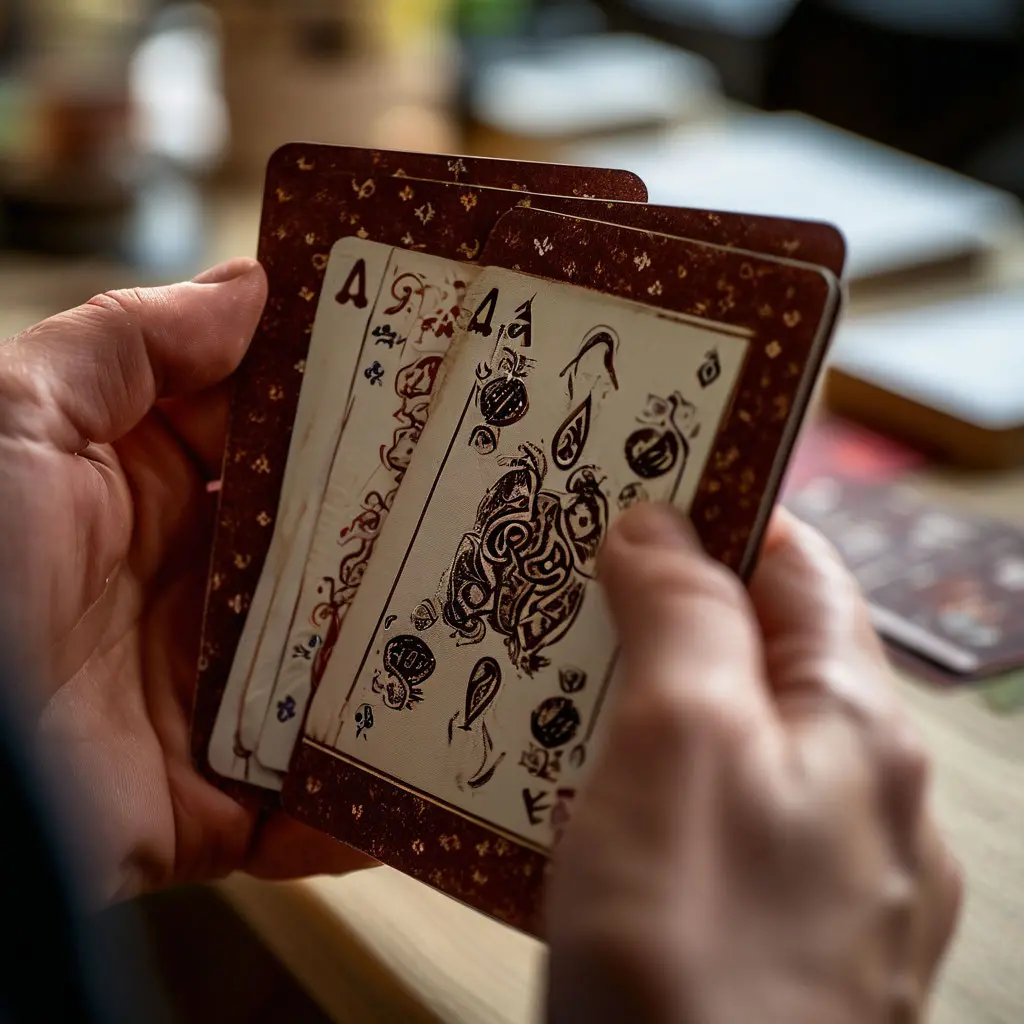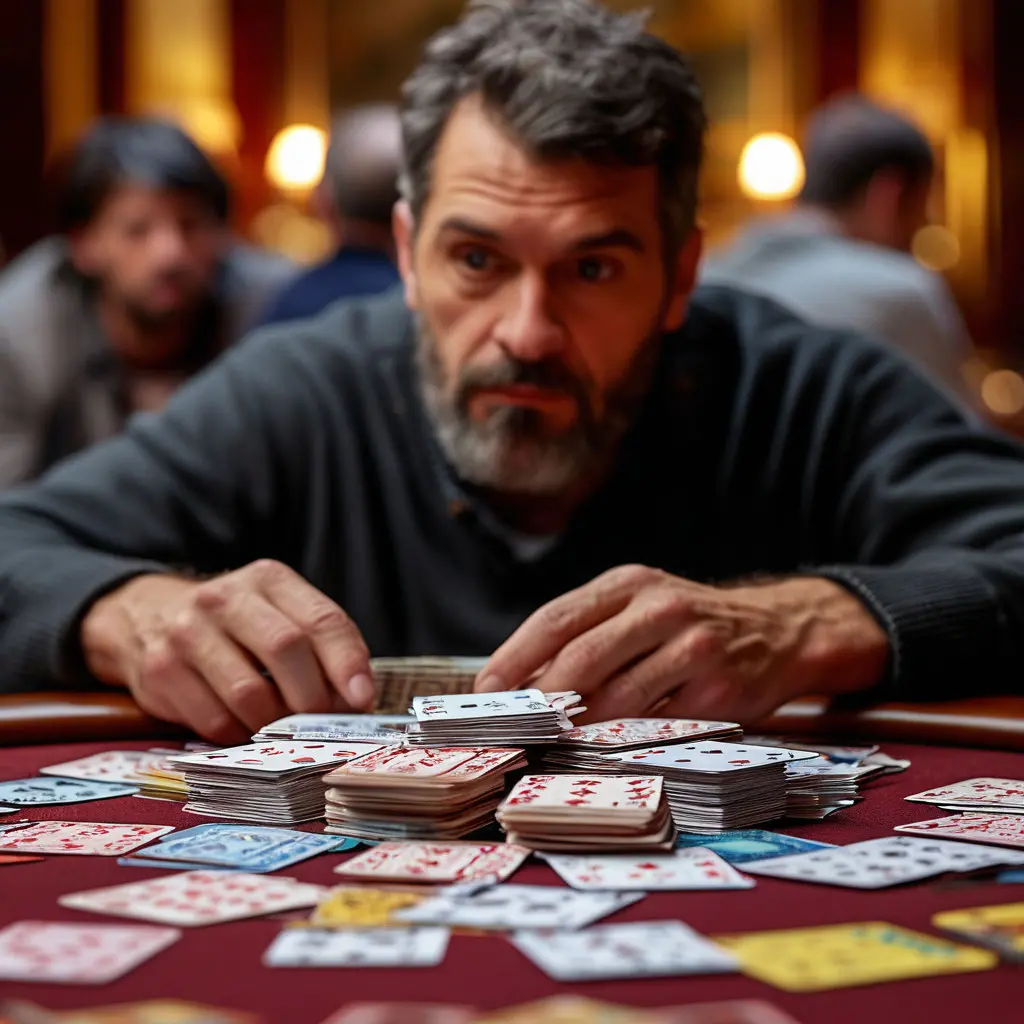
How to Play Rummy
Master the art of Rummy! Whether you are a beginner or an experienced player, we have all the tips and strategies you need to excel in this skill-based game.
Objective of the Game
Rummy is a card game that involves skill, strategy, and a little bit of luck. The main objective of the game is to form valid sets and sequences using the cards dealt to you. A set is a group of three or four cards of the same rank but different suits (e.g., 7♠ 7♦ 7♥). A sequence is a group of three or more consecutive cards of the same suit (e.g., 4♠ 5♠ 6♠).
The game ends when a player has successfully formed a valid set and/or sequence with all their cards, except for one card, which is discarded. The player then "declares" or "knocks," and the round ends.
Dealing the Cards
1. For 2 players: Deal 10 cards each.
2. For 3 or 4 players: Deal 7 cards each.
3. The remaining cards form the stock pile, placed face-down in the center.
4. The top card from the stock pile is turned face-up and placed beside it to form the discard pile.
Gameplay
The game is played in turns, with each player performing the following actions in order:
1. Draw a Card: On their turn, a player must draw one card. They can either draw the top card from the stock pile (face-down cards) or pick up the top card from the discard pile.
2. Forming Sets and Sequences: After drawing, the player can attempt to form valid sets or sequences.
3. Discard a Card: To complete the turn, the player must discard one card from their hand onto the discard pile.
Knocking and Declaring
1. A player can knock when they have formed valid sets and/or sequences with all their cards, except one. The remaining card must be discarded before knocking.
2. To knock, the player discards a card and places it face-up on the discard pile. This is a signal that the player is ready to end the round.
3. If a player declares (successfully forms a valid set/sequence with all their cards except one), they immediately end the game round and lay down their cards face-up for everyone to see.
Types of Hands in Rummy
There are two main ways to end the round:
- Knocking: When a player has formed valid sets/sequences and only one card remains, which is discarded before knocking.
- Going Out: When a player forms complete sets/sequences with all their cards and has no cards remaining.
Scoring
Rummy is typically played over multiple rounds, and the winner is the player who scores the fewest points over a series of rounds.
Points for each card:
- Number cards (2 through 10) are worth their face value (e.g., a 5 is worth 5 points).
- Face cards (Jack, Queen, King) are worth 10 points each.
- Ace is worth 1 point (if used as the lowest card in a sequence) or 11 points (if used as the highest card in a sequence).
Knocking Player: If the player who knocked ends the round successfully with a valid set/sequence, their score is the total value of the cards that the other players have not matched. If the other players have incomplete hands, they will incur penalties based on the value of their unmatched cards.
Winning the Game
The game continues for a series of rounds, with each player aiming to reduce their score.
The player with the lowest score at the end of the game wins. Scoring can vary depending on house rules, but a typical rule is that the game ends when a player’s score reaches 100 points or more.
Advanced Strategies
- Observe Opponents: Pay attention to the cards that your opponents discard and what they pick up. This can give you insights into their hand and their strategy.
- Manage Your Hand: Prioritize forming sequences rather than sets. Sequences are harder for your opponents to block and can be made using a broader range of cards.
- Discard High Cards: Discarding high cards like face cards early can help minimize your risk if the game ends unexpectedly.
- Use the Joker Wisely: If you're playing with a joker, it can serve as a wild card to help complete a sequence or set. Use it strategically to close gaps in your hand.
- Knocking Early: If you have a relatively strong hand but are unsure of completing a sequence, consider knocking early to secure a smaller score.
Common Mistakes in Rummy
- Not Observing Discards: Ignoring the discard pile can lead you to miss out on useful cards or inadvertently help your opponents by discarding something they need.
- Holding onto Cards Too Long: If you hold onto cards too long without forming a sequence, it can significantly raise your score if the game ends unexpectedly.
- Forgetting to Knock: If you have a completed hand but forget to knock before discarding, it could cost you the opportunity to finish the round with a low score.
Advanced Strategies & Tips
Once you are familiar with the basics of Rummy, it’s time to dive into advanced strategies that will take your game to the next level. These tips focus on reading your opponents, managing your hand effectively, and playing the long game.

Advanced Tips to Master the Game
- Understand Your Opponents: Watch for patterns in the way your opponents play. Are they focusing on forming sequences? Are they holding back on discarding certain cards? This information can give you a tactical advantage.
- Discard High-Value Cards Early: If you have high-value cards (like face cards), consider discarding them early unless they form part of a sequence. They can cost you a lot of points if your opponent declares first.
- Manage Your Hand Carefully: Always aim to keep a few cards that can be easily turned into sequences or sets. Avoid holding onto isolated high cards that cannot be combined.
- Know When to Declare: Don’t hesitate to declare if you’ve formed a valid hand. In some cases, declaring early can prevent an opponent from completing their hand and can save you points.

Psychological Play
Rummy is a game of skill, but it also involves a degree of psychology. Here’s how you can outsmart your opponents:
- Bluffing: Occasionally, you can bluff by discarding cards that might make others think you are close to completing a set or sequence. This could force them into making mistakes.
- Mind Your Body Language: Avoid revealing too much about your hand through your body language or facial expressions. Keep a neutral stance and remain unpredictable.
- Observe Opponents' Discards: Be cautious of the cards your opponents discard. If they consistently discard a certain suit, it may mean they are working on a sequence involving those cards.
